Grossi: IAEA Talks with Iran on Track, Nuclear Inspections Must Resume/ We Are Close to Reaching an Agreement
Rokna Political Desk: The Director General of the International Atomic Energy Agency (IAEA), Rafael Grossi, emphasized in a press conference that the United Nations’ nuclear watchdog’s talks with Iran are on the right track and called for the resumption of inspections in Iran.
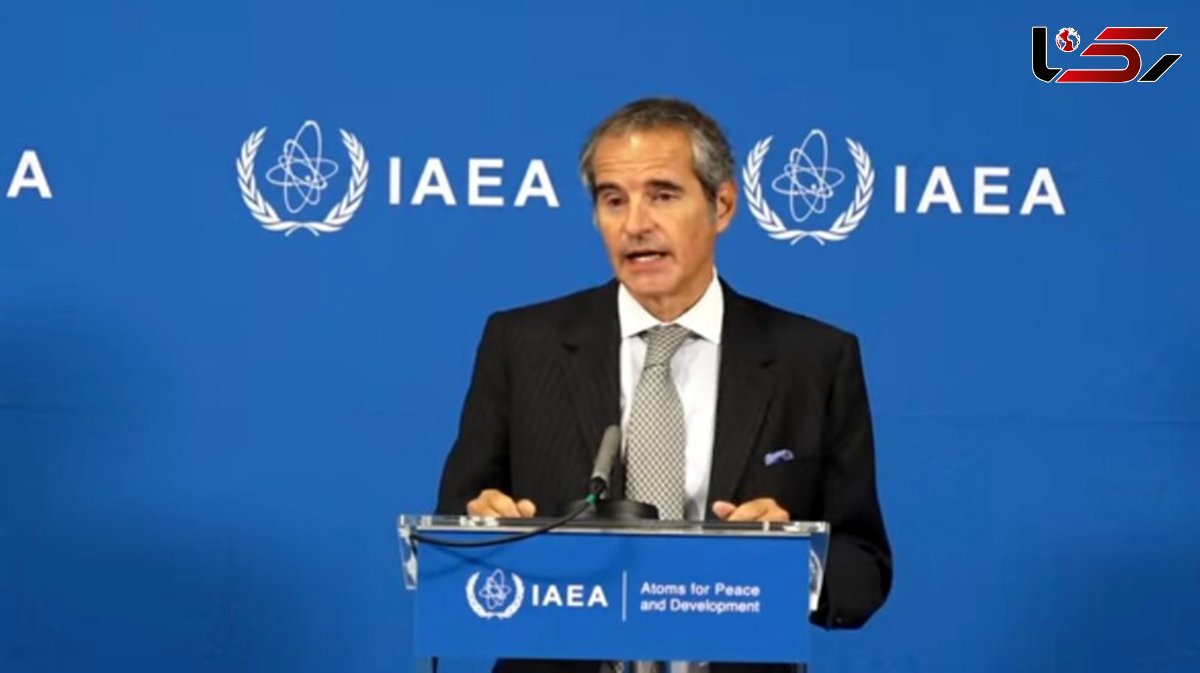
According to Rokna, the IAEA Board of Governors’ regular session began this afternoon. This is the first regular session of the Board following the targeting of Iran’s peaceful nuclear facilities by the United States on June 22 and during the aggressive actions of the Israeli regime. Previously, the IAEA website announced that the Board of Governors’ session would run from September 8 to September 12. According to the announcement, the agenda of the session is expected to include “nuclear safety and radiation; the 2025 Nuclear Security Report; strengthening the Agency’s activities related to nuclear knowledge, technology, and applications; verification and monitoring in the Islamic Republic of Iran in light of UN Security Council Resolution 2231; implementation of safeguards in the Democratic People’s Republic of Korea; implementation of the Non-Proliferation Treaty (NPT) safeguards in the Syrian Arab Republic; NPT safeguards agreement with the Islamic Republic of Iran; nuclear safety, security, and safeguards in Ukraine; transfer of nuclear materials under the AUKUS agreement and all its safeguards aspects under the NPT; IAEA safeguards in West Asia; organization of IAEA staff and women in the Secretariat.”
Grossi Hopes to Travel to Iran
Rafael Grossi, speaking at today’s press conference, stated that no specific timetable exists for a visit to Tehran, adding: “I hope to travel to Iran as part of the normalization of relations.”
The Director General added: “We are negotiating with Iran at various levels and have held technical meetings with its officials. I have also spoken by phone with Foreign Minister Araqchi. We are moving in the right direction.”
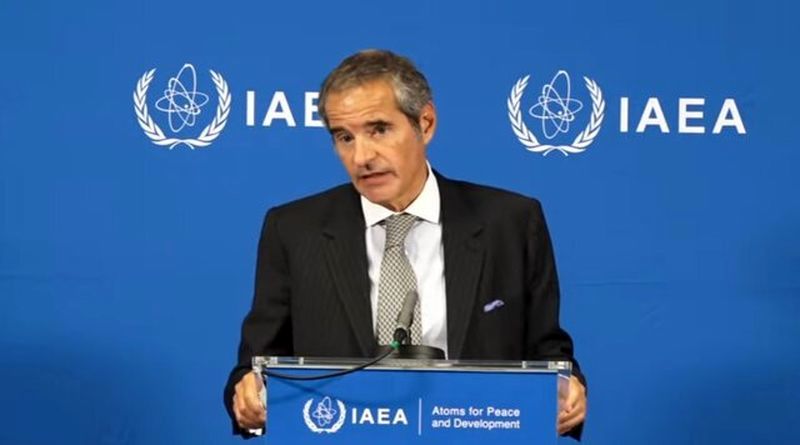
IAEA Inspections in Iran Must Be Conducted
Responding to a question about the risks of potential failure in negotiations with Iran regarding the resumption of inspections, Grossi said: “IAEA inspections are mandatory under the Non-Proliferation Treaty (NPT), and Iran is legally obliged to conduct them.”
Without referencing the reasons behind changes in Iran’s cooperation with the Agency, he claimed: “When significant changes occur in a country’s nuclear stockpiles, specific actions must be taken. A normal timeframe for these actions is defined. I have always stated that in our negotiations with Iran, we strive to follow and promote common sense.”
“Trigger Mechanism Is Not Under My Supervision”
Grossi, without condemning the attacks on Iran and its nuclear facilities, stated: “Following the attacks on Iran, physical damage and political changes occurred. Necessary actions must be taken due to critical issues, including the fate of Iran’s enriched uranium stockpiles. Therefore, we cannot continue these negotiations for several weeks or months. Additionally, other issues, such as the so-called ‘trigger mechanism,’ are not under my supervision.”
He added: “In my view, the purpose of political and non-political issues, including the trigger mechanism, is to place us in specific conditions.”
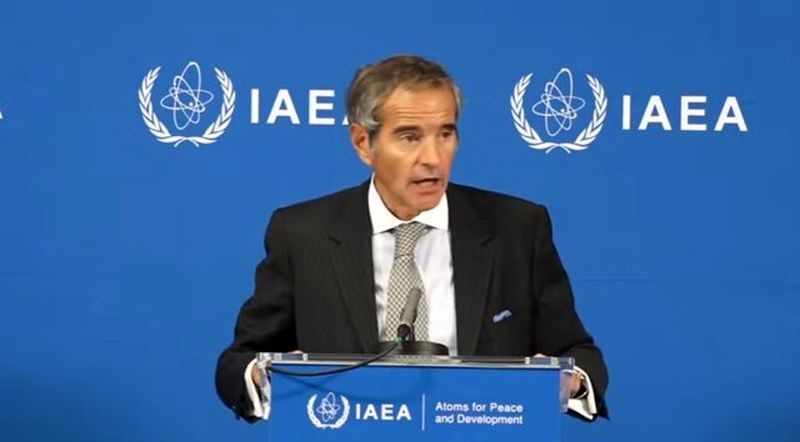
Decisions on the Trigger Mechanism Lie with Three European Countries
Regarding potential implications of resumed IAEA inspections on the activation of the trigger mechanism, Grossi said: “We need to resume inspections because it is the Agency’s duty. The reason should not be the mechanism or other issues. Policy is not my domain, and decisions regarding the trigger mechanism rest with three European countries, which are conducting separate negotiations with Iran.”
He added: “We need to resume our inspections in Iran. These developments do not occur in a vacuum. In my view, if inspections are resumed, we can demonstrate to the region, the world, the United States, and the three European countries that we are again conducting our oversight and monitoring in Iran, reporting developments from within the country. I believe this will have a positive impact.”
Condemnation of Scientist Assassinations Not My Duty
In response to a question regarding the IAEA’s lack of condemnation for the killing of Iranian nuclear scientists—which the journalist noted violates international law and Agency safeguards—Grossi stated: “I am a diplomat. I believe in international law and negotiation to resolve issues. In this context, I never condemn or encourage acts of violence. I do not consider it the Director General’s duty.”
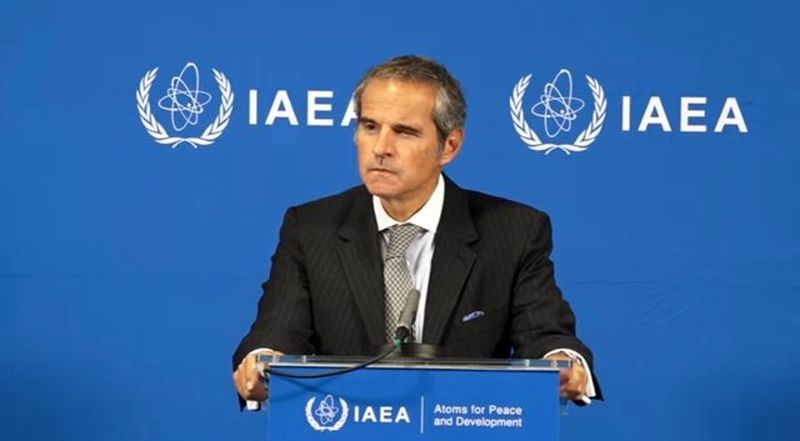
He claimed: “On many occasions, I had opportunities to condemn such actions, but the purpose was often to blame other countries, which I consistently avoided. I always present the law, but I have a job to do. Entering political conflicts and pointing at other countries is not my responsibility.”
Focus on IAEA Responsibilities
When asked why he is running for UN Secretary-General while the IAEA faces multiple crises, Grossi claimed: “Now is not the time to discuss this. My focus is on my duties as Director General of the Agency.”
No Clear Information on Iran’s Enriched Uranium
Regarding whether Iran has provided information on the location of its enriched uranium to the IAEA during negotiations, Grossi said: “There is no clear information. This is part of the process that needs to be completed. According to international law, countries must provide this information to the Agency, which verifies its accuracy. This is one of the key issues in the bilateral process between Iran and the IAEA. We hope that, if successful, we will gain more information in the coming days or hours.”
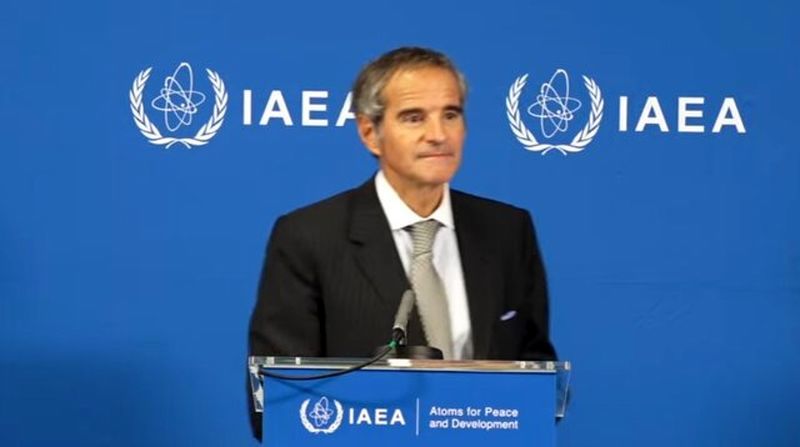
IAEA Never Transfers Information to Anyone
Addressing Iran’s concern about potential espionage by the IAEA and sharing sensitive information with the U.S. or Israel, Grossi asserted: “The confidentiality of sensitive information has always been maintained. Iran has been under the Agency’s highest level of oversight. Iran knows the IAEA never shares information with anyone. We understand the sensitivities in these circumstances, especially given the attacks. Experts know how the Agency safeguards confidential information, and we hope this narrative will stop.”
Resumption of Inspections Reduces Military Threats
On how to prevent similar attacks on nuclear facilities in Iran or elsewhere, Grossi claimed: “Internal decisions of countries are their responsibility. As Director General, I am responsible for international law. We believe in diplomacy and technical measures. I have always stated this message. I believe that if the Agency succeeds and inspections resume in Iran, military threats will decrease.”
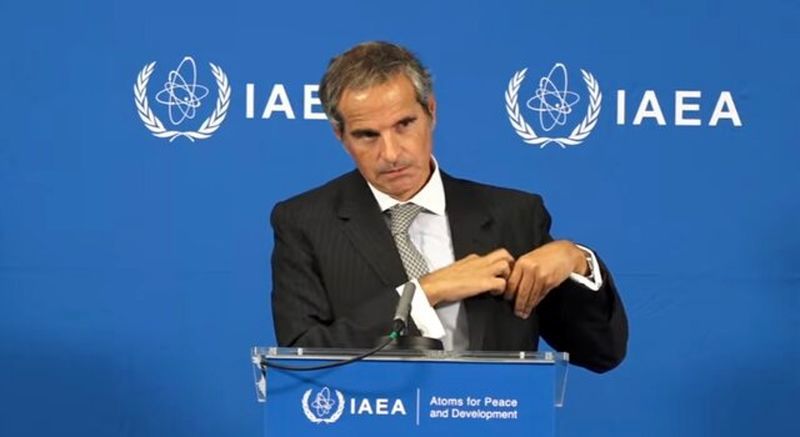
Main Challenge: Access to Facilities
On the main challenge in current negotiations, Grossi said: “One of the current challenges is how the Agency can access facilities that may have been partially or fully destroyed. Physical access may be difficult, and we need to discuss this with Iran.”
He added: “The Iranians tell us certain actions must be taken, which involve many details. Many problems exist, but one main challenge is access to these facilities, as well as Iran’s new internal structure. I cannot fault them; countries have the right to change internal processes as long as international law is followed. Currently, Iran’s domestic situation has changed such that any decision requires senior political authority.”
He concluded: “A political challenge has emerged, but we are close to an agreement and hope it will be realized.”
Grossi Hopes Iran Remains in the NPT
When asked how inspections would be conducted under a new agreement, Grossi said: “Iran is a member of the Nuclear Non-Proliferation Treaty (NPT). Tehran is not under additional monitoring. Current commitments are limited to NPT safeguards, and IAEA inspections will continue accordingly.”
Regarding the possibility of Iran leaving the NPT, he stated: “Countries must be members of this treaty. Even non-member countries should join, as the treaty has many benefits. Iran’s official position is to remain in the NPT, although there are internal dissenting voices. I hope Iran remains in the NPT.”
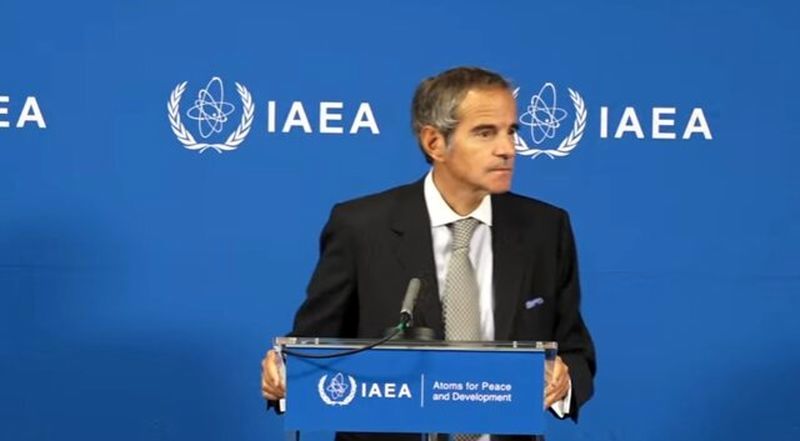
Iran Announced New Enrichment Site Prior to Israeli Attacks
In response to a question about inspecting the Isfahan site and the timing of Israeli attacks, Grossi claimed: “The fact that we cannot conduct inspections in Iran prevents me from fully answering. Iran announced a new enrichment site just before the Israeli attacks. Inspections were planned, and Iran agreed, but events prevented them. In my view, if conditions return to normal, inspections will take place. We have no reliable information about potential enrichment at other sites in Iran.”
Send Comments